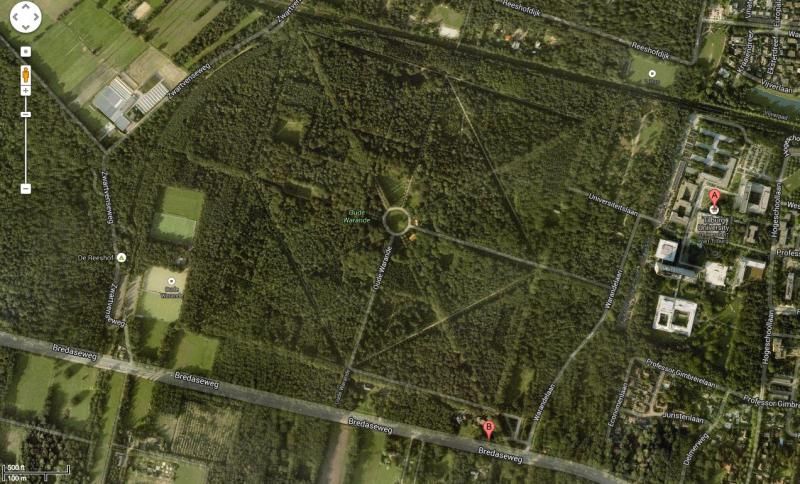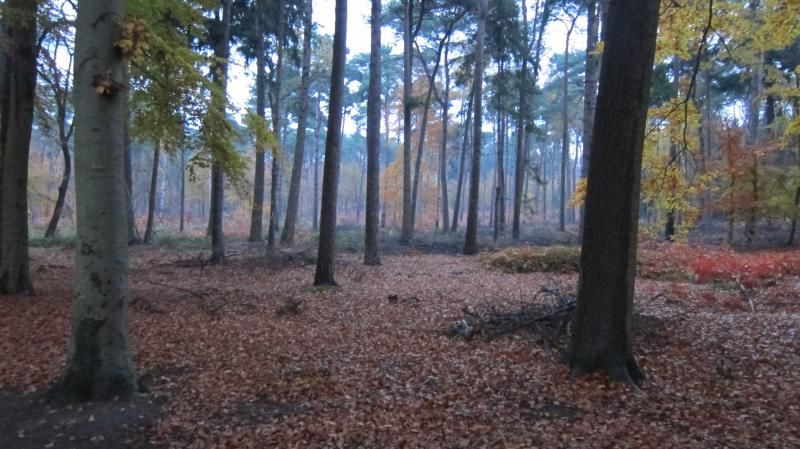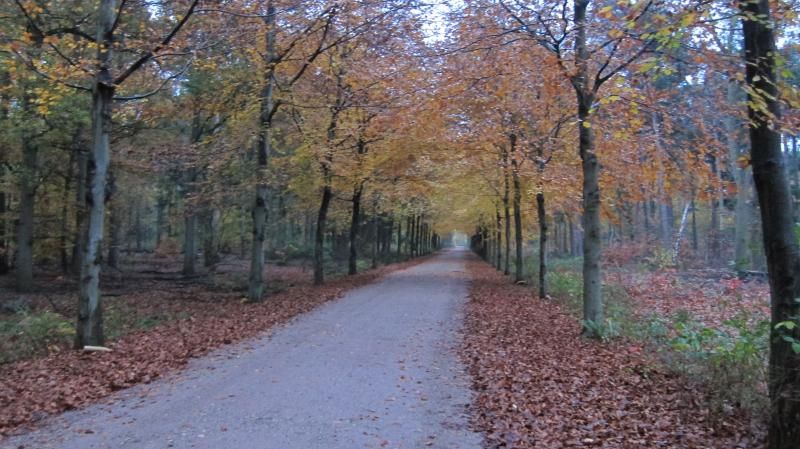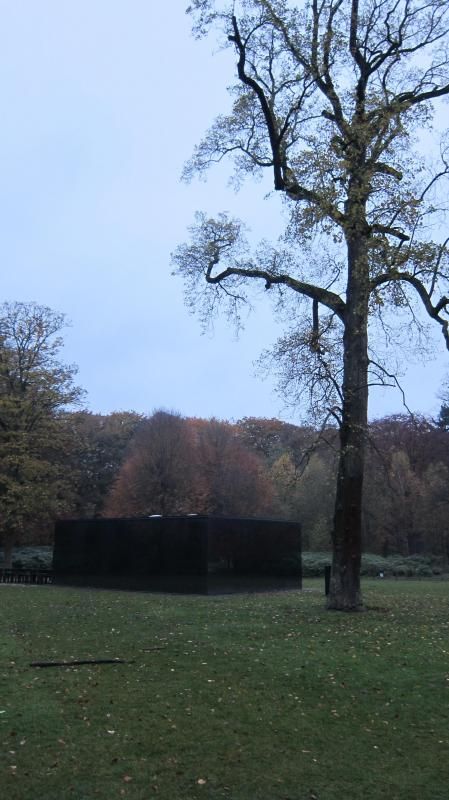The black heart of a Dutch forest
In Tilburg, next to the great university, there is a dark, beautiful forest called De Oude Warande. Once a royal forest of some kind, roads and paths are laid out in star pattern superimposed on a series of squares inscribed within the outer boundary:

It is different from the forests of Alaska (no bears) or the Lower 48 (no deer hunters), and different again from the highly cultivated parklands you see in the U.K. De Oude Warande isn't wild, really, although some wild animals undoubtedly live there. It's park-like, although not strictly groomed or cultivated. It wasn't hard to find a quiet place there to do my tai chi exercises, that morning last November:

De Oude Warande seemed worn to me, or (perhaps I am reading too much into it) even careworn, and walking down its roads, thoughts of European history weighed heavily upon me:

As I wandered before my seminar I thought of some of the bad forests of Europe: Katyn, for example, or Kampinos, the ancient forest west of Warsaw where they murdered poor Przepiórka, among many others. Or, if you are German, there was the mad waste of the Ardennes offensive, and the terrible, pointless fight in the Spreewald, right at the end of the war. This is deep in the German psyche, right back to Hansel and Gretel, although one could argue that the German warrior spirit first came of age when the tribes met the Romans im Teutoburger Wald.
And as I approached the center of that somber vale, I saw in the distance a dark geometric structure, subdued, mournful, standing in silent testament to some unknown sorrow.

Turns out it's a nice coffee shop, called The Grotto. The girl was very nice, and the coffee was delicious.
The rest of my walk was uneventful.


1 Comments:
In this walk you've captured that particular burden of European history, particularly the terrible danger of fading fancies of aristocracies, terrified of losing influence. This losing of power can either handled with extraordinary grace or, as in so much of the world, the terror of losing power drives weak tyrants ingovernment, business, and religion, into escalating cruelty, often, violence, and certainly limitless robbing of the human potential of millions.
The key, century old source in my undergraduate thesis posited that the loss of the frontier would give rise to social structures that were anti-democratic. We now see something of the accumulation of that kind of burdened history here, an over-cultivation of social, economic and physical structures, class, cash and buildings, that shuts down and out the generations that should be rising.
Post a Comment
<< Home